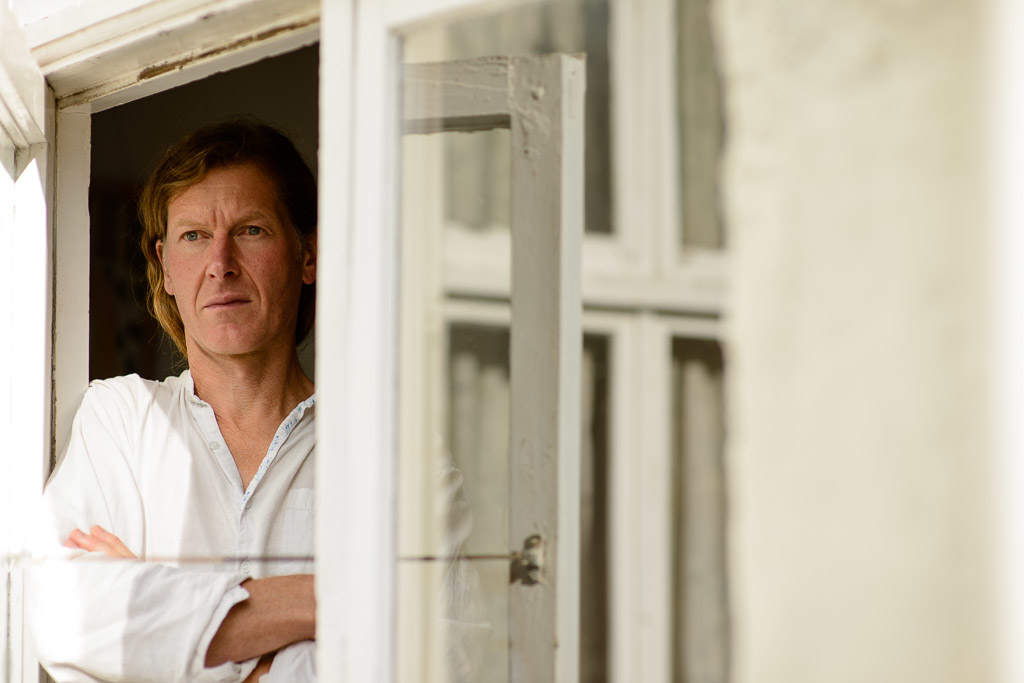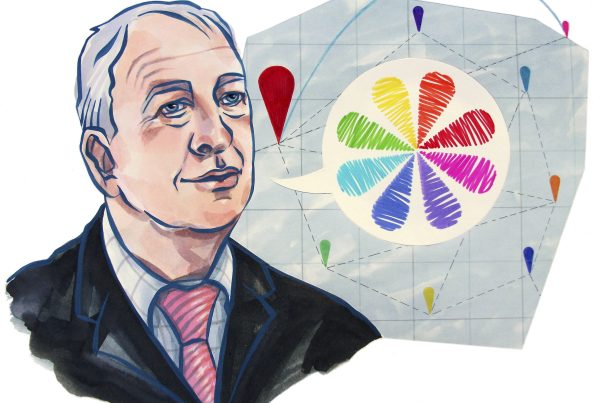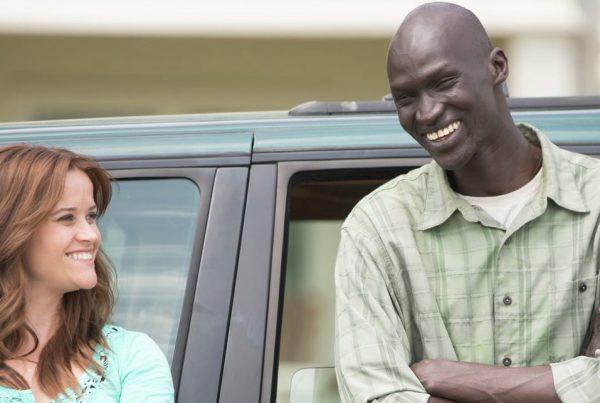
Graham has thought a lot about astrology since his first serious encounter with it, as a botanist in his late 20s. “It rocked the boat a little bit within me,” he says. But it also made sense. The idea that the ever-moving spheres of heaven, rotating in perfect unity, could spell out something about human existence… it was elegant, coherent, intricate, vast, beautiful, traditional, historical. Graham was, and is, “a seeker of ideas, information and truth. And astrology helps answer the biggest questions.”
He lives now in Raumati, but comes to work at the Wellington Astrology Centre, an office on the first floor of 9 Marion Street that he shares with two tarot readers and other astrologers. Here he sees clients, and tries to use the stars to draw a picture of “their essence, their personality, their drive, their motivation”. They might have Mars, the planet of war, prominent in their horoscope, but be in denial about its effect on their life. “My job is to help them step into their angry assertiveness… to use their physical body more, or stand up to their boss more.”
The results can be remarkable. “I really like it when people go away lighter and, though it sounds pretentious, almost illuminated. That’s what was lacking in my job as a scientist. I wasn’t touching people’s lives — and I really like touching people deeply.”
How does he think it works, this link between the path of the stars and people’s personalities? Graham pauses, and says, “It’s actually a really difficult one to answer.” Albeit one that, having been asked so often, he might have found an answer for. “In some ways, I make no apology for that, because it’s like a mystery. I’m captured by the mystery. When we look for mechanisms, we start to destroy astrology. We turn it into a science, we pick away at it. It’s a different kind of truth.”
But at the same time, an empirical claim, a prediction, is being made, is it not? “Maybe I’m full of contradictions,” he says, pondering the point. Prediction is such a dicey business. “But through charting history, we start to see that there is almost a cause, if you like, that the planets are causing things to happen to the Earth. There seems to be a paradox here.”
Paradoxes aplenty, in fact. Horoscopes for cities are, apparently, a real thing, and Graham has drawn up Wellington’s. But while he hasn’t yet used it to foretell the city’s future, it holds “tantalising” things. “You could predict physical phenomena, such as weather events… It would be too flippant for me to say that you can see a massive earthquake coming in the next few years. But at the same time, there are certainly signs in five to ten years that need to be taken care of.” The horoscope, he adds, could predict “political sea changes”, and could be used “by enlightened leaders to say… how do I best manage this city?”
But is Celia listening? “Oh no,” he says; the mayor, he understands, isn’t a believer, and is unlikely to be appointing a chief astrologer, as a mediaeval king might have done. “It’s sad that that’s been lost. It’s a role that has its problems, because it can invoke a kind of power-hungriness, which most astrologers have to be aware of in our work. But it would be nice if we had that role.” Instead, he has to be content with helping the odd business (“I’ve worked with an advertising company, I’ve worked with a musical instrument company… it’s one of the areas astrology could be incredibly powerful in, organisational change”) — and, of course, holding up the mirror to people’s selves.




